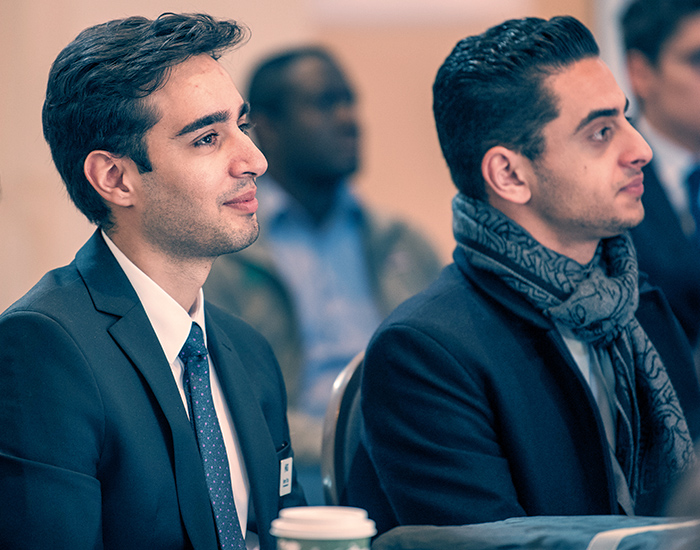This story was first published in the 2019-20 Annual Report.
Translational medicine is an emerging field in which questions around the mechanisms of disease are used to guide research in order to find the most effective treatments for these diseases. In Keck Graduate Institute's (KGI) Master of Science in Translational Medicine (MSTM) program, students get dynamic exposure to this field as they work with City of Hope to find treatments for elusive types of cancer and autoimmune conditions.
The partnership between KGI and City of Hope is a symbiotic one.
“At City of Hope, we have all this opportunity for clinical research for drug development, but we don’t actually have a curriculum that was specifically developed for this purpose,” said Yilun Liu, Co-Director of KGI’s MSTM program, Vice Dean of City of Hope’s Irell & Manella Graduate School of Biological Science, and Professor/Associate Chair for the Department of Cancer Genetics and Epigenetics.
In this joint program, City of Hope provides MSTM students with an opportunity to conduct hands-on drug development and translational research at one of the nation’s leading hospital and cancer/autoimmune research institutions, while KGI brings its curriculum and pharma/biotech connections to the table.
The first year consists of science- and industry-focused courses, independent research, and professional development, while the second year is devoted to the translational research thesis, which is conducted almost exclusively at City of Hope.
Students can choose from more than 100 projects in areas such as Disease Mechanisms and Therapeutics Development, Genomics/Epigenetics Research and Precision Medicine, and Stem Cell Therapy. They are paired with a City of Hope faculty mentor who assists them with their research.
Eemon Tizpa and Gubidxa Gutierrez Seymour, the two 2020 graduates from KGI’s inaugural MSTM class, conducted award-winning projects for KGI’s Research Symposium exploring, respectively, brain cancer treatments and breast cancer susceptibility among Latinas. Seymour is currently pursuing employment opportunities in industry and research, while Tizpa is working on secondaries and applying to medical school this cycle.
Examples of thesis projects from the Class of 2021 include pancreatic cancer treatment, developing Epstein-Barr virus vaccines, and treating multiple myeloma.
These projects expose students to the rigors of graduate-level research. According to Liu, students entering PhD programs directly from undergraduate programs often are not prepared for the challenges.
“In a PhD program, there’s a lot of failure and criticism you have to face, which creates stress if you’re not used to it,” Liu said.
The MSTM program, then, helps students to better transition into PhD programs. For students entering the medical profession, this program sets them apart from other medical school applicants while providing valuable hospital experience.
The program is also well-suited for students who hope to pursue careers in industry or research and development. Clinical research is the skill most frequently listed in top postings for Clinical and Translational Science professionals.
Among the top fields for Life Sciences employment, Research and Development, Biopharmaceuticals, and Academic Research rank high both in terms of total employment and growth.
“At KGI, we’re helping students acquire knowledge that they would not acquire in other institutions,” said Anastasia Levitin, Professor of Practice in Translational Medicine.
“We prepare them to work in the industry.”
When students are starting out, she said that most of them either want to pursue a PhD or go to medical school.
While KGI prepares them for these paths, it also helps them understand that there are other paths and gives them the tools for entering these careers.
“If you want to help people, you can help many more people by working in research and development,” Levitin said. “You can design tools and therapies that doctors will use to treat their patients.”
